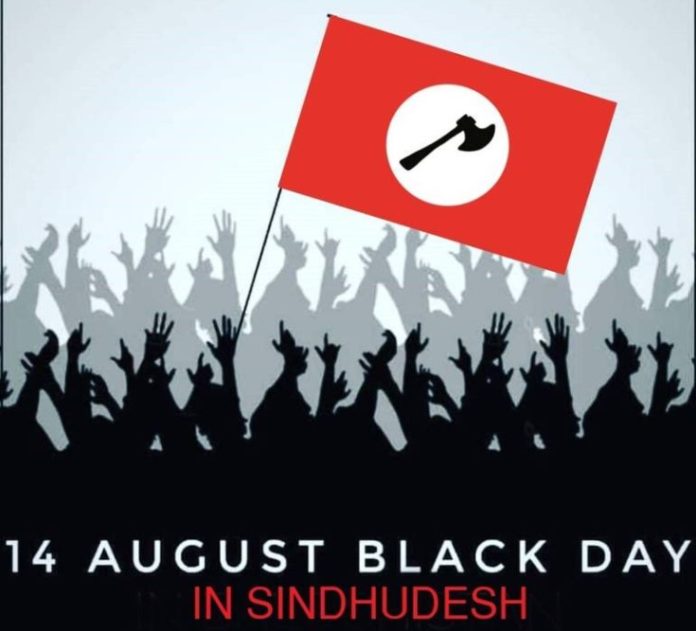The Jeay Sindh Freedom Movement (JSFM) has marked August 14 as a “Black Day” across the province of Sindh, as its workers tie black arm bands and hoist black flags at intersections, while also raising the national flag adorned with a red mace. The movement’s members are using this occasion to record their protest against what they deem as the historical mistake of Pakistan’s establishment on August 14, 1947.
JSFM’s leadership, including Chairman Sohail Abro, Zubair Sindhi, Amar Azadi, Sodho Sindhi, Hafeez Deshi, and Pireeh Sindhu, issued a joint statement expressing their perspective. They contend that prior to 1947, Sindh existed as an independent entity for thousands of years, making the establishment of Pakistan an unnatural state and a grievous historical error.
Pakistan’s Creation: A Dark Day For Humanity
Describing the creation of Pakistan as a “dark day for humanity”, the JSFM leaders claim that the Sindhi, Baloch, and Pashtun communities were subjected to oppression and enslavement by what they refer to as the “Punjabi military establishment”, They accuse this entity of ongoing economic and political suppression, asserting that their lands, resources, and homeland have been forcefully occupied.
“The right to self-determination and freedom is our birthright”, declared Chairman Sohail Abro, affirming their unwavering commitment to achieving independence from Pakistan. “One day, we will break free from this rogue state.”
As the anniversary of Pakistan’s independence approached, JSFM raised concerns about the crackdown on pro-independence political workers in Sindh by Pakistani Punjabi state agencies. They claim that cases of abduction and disappearance of such workers are still rampant across the region. JSFM leaders have issued an appeal to international organizations, including the United Nations, Amnesty International, and the European Union, to take notice of these human rights violations and to intervene in accordance with international law.
While tensions continue to simmer, JSFM’s observance of Black Day underscores the persistence of historical grievances and the ongoing struggle for self-determination in Sindh.

